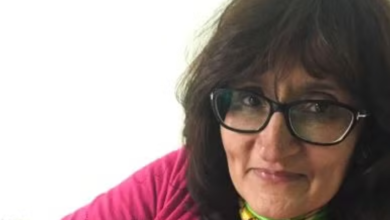Justin Trudeau’s social media post on Israel-Hamas conflict sparks tensions with India
Controversial post raises eyebrows and strains relations amidst ongoing conflict.

Canadian Prime Minister Justin Trudeau has recently made a statement on social media regarding the Israel-Hamas conflict, which has raised concerns, particularly in India. In his tweet, Trudeau mentioned that he had a conversation with UAE President Mohamed Bin Zayed about the situation in Israel and India. The tweet emphasized the importance of protecting civilian lives and upholding the rule of law. This comes at a time when the conflict between Israel and Hamas in the Gaza Strip has resulted in numerous casualties, with hundreds dead and thousands injured.
Trudeau’s tweet has sparked controversy, not only due to its relevance to the Israel-Hamas conflict but also because of its implications for Canada’s relationship with India. In recent times, tensions have escalated between Canada and India, primarily stemming from the killing of Khalistani extremist Hardeep Singh Nijjar. Nijjar, the chief of the banned Khalistan Tiger Force (KTF), was fatally shot in British Columbia back in June.
The situation escalated further when Prime Minister Trudeau addressed the Canadian parliament and made allegations that “Indian government agents” might be involved in Nijjar’s death. This accusation led to a strained relationship between Ottawa and New Delhi, resulting in both countries halting visa services for each other and issuing updated travel advisories. Additionally, the governments expelled each other’s top diplomats, further deteriorating diplomatic relations.
Addressing the tensions between Canada and India, Indian External Affairs Minister S Jaishankar, following the United Nations session in New York, highlighted that the ongoing problem revolves around the permissiveness in regard to terrorism, extremism, and violence.
The Israel-Hamas conflict, which Justin Trudeau’s tweet touched upon, is a pressing international issue that has garnered global attention. The conflict has been ongoing for some time and has escalated significantly, resulting in a high number of casualties and injuries. It is a complex and sensitive matter that requires careful consideration and international cooperation to find a peaceful resolution.
On the other hand, the tensions between Canada and India regarding the killing of Hardeep Singh Nijjar have added an additional layer of complexity to the situation. Nijjar’s role as the chief of the banned Khalistan Tiger Force underscores the challenges posed by extremist groups. The allegations made by Prime Minister Trudeau regarding the involvement of “Indian government agents” in Nijjar’s death have serious diplomatic implications and should be thoroughly investigated.
The diplomatic fallout between Canada and India, including the suspension of visa services and the expulsion of diplomats, is a concerning development. Diplomatic relations are crucial for fostering cooperation and addressing global challenges effectively. The breakdown in relations between two countries can hinder progress on various fronts, including trade, security, and cultural exchange.
Indian External Affairs Minister S Jaishankar’s remarks about the issue revolving around the permissiveness towards terrorism, extremism, and violence highlight the broader concerns regarding these issues. Terrorism and extremism pose a significant threat to global peace and stability, and nations must work together to combat these threats effectively. International cooperation is essential to prevent acts of terrorism and to hold those responsible accountable.
You might also interested in – Canadian PM Justin Trudeau and his family go into hiding after protests in his country



